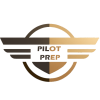Flying a plane is no easy task. It is a job that demands a mix of technical and non-technical. Every year airline pilots are graded on their performance in accordance with 9 pilot competencies. 5 of these competencies are non-technical.
Pilot interviews are designed to assess these multifaceted capabilities, preparation is crucial to stand out in an industry that is highly competitive and stringent in terms of safety and efficiency.
Use the STAR Technique
The STAR technique is an interview response method to help candidates provide structured and complete answers to questions requiring examples to competency-based questions. STAR stands for Situation, Task, Action, and Result, and it serves as a guide to structuring your responses in a way that effectively showcases your skills, competencies, and experiences.
First, describe the “Situation” you were in, providing context and background of the task at hand. Next, define the “Task” you were given or the challenge you faced. Then, you delve into the “Action” you took, detailing the steps you took and the skills or techniques you applied, and who you worked with. Finally, you share the “Result” of your actions. Did it lead to a positive outcome? Was it a negative outcome? If yes, why? Not all answers require positive results.
This technique enables you to paint a picture of your problem-solving abilities and how you handle specific scenarios, providing tangible evidence of your suitability for the role. Crucial for airlines like British Airways which use evidence-based interviews.
21 Pilot Interview Questions
Here are some example questions that you might encounter during a pilot interview, both technical and behavioral, think about applying the STAR technique. For more, please see my 400+ question database.
- What challenges does our airline face?
- If you couldn’t be an airline pilot, what would you do?
- What does the role of a modern-day airline pilot entail?
- What makes a good First Officer?
- How can you reduce our costs at this airline?
- Tell me about a time you had to persuade someone?
- Tell me about a time you’ve had to adapt your communication style?
- How do you prepare for a flight?
- How do you handle stress?
- Describe a time when you had to make a quick decision.
- Tell me about a time you have worked effectively as a team?
- How would you handle a situation where you and your captain disagree on a decision?
- How do you stay updated with the latest aviation news?
- Describe a time you had to handle a difficult situation with a crew member.
- Tell me about a time you gave negative feedback?
- What methods do you use to keep yourself fit and alert?
- Why did you decide to become a pilot?
- Can you explain the effects of altitude on the human body?
- How would you manage a situation with a disruptive passenger?
- How would you ensure effective communication with air traffic control?
- What steps would you take if you suspect a colleague of substance abuse?
Sit down with a pen and paper and think about HOW you would answer these questions. You won’t answer every question perfectly. It’s important to listen to the question being asked and apply your life experience to the question, whether that be flying or non-flying related.
Good luck!
